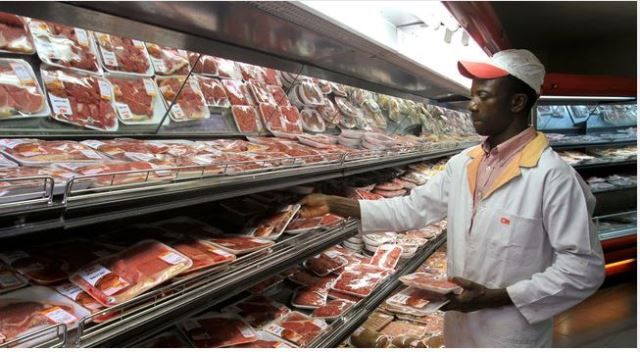
Good news for meat prices in South Africa – but there’s a catch
Retail prices for beef could start dropping in the coming months as demand eases due to economic pressures. However, unless the rand strengthens significantly, food prices in general are likely to stay higher for longer.
According to the Bureau for Food and Agricultural Policy (BFAP), meat prices have been one of the most significant contributors to high food inflation in South Africa.
Consumer price inflation (CPI) data from Stats SA marked meat inflation at 11.4% in February 2023, up from 11.2% in January. This was the highest annual increase for meat since February 2018 (also 11.4%).
However, the BFAP said that with consumer spending power under increasing pressure and exports moving slower than normal, beef carcass prices have started to decline, “and this could spill into retail prices for meat products over the coming months”.
A major caveat to this is how the broader market performs, however.
The BFAP said that many of the factors that have driven food inflation higher over the past year are not unique to South Africa, including high agricultural commodity prices globally, as well as high energy costs, which influence prices of inputs such as fuel and fertilizer.
“While a number of these global factors are easing, as evidenced in the continued decline in the FAO’s food price index, the depreciation in South Africa’s exchange rate has offset much of the global decline while persistently high levels of load shedding added significant costs across the agriculture and food value chain,” it said.
For example, poultry prices also increased further in February, mainly due to the weaker exchange rate that negated the decline in global markets and the effect of load shedding on processing capacity.
Unless these costs start dropping significantly, prices across other food categories could prove sticky.
“Key factors that will contribute to food price inflation over the coming months include exchange rate dynamics and the extent of load shedding required. Sharp exchange rate depreciation has already prevented much of the observed decline in world prices from spilling into South Africa,” the BFAP said.
“Any significant appreciation in the coming months would have the opposite effect, easing domestic prices for agricultural commodities.”
The rand was weaker against the dollar on Tuesday, following resilient jobs numbers out of the US on Friday. On Tuesday the rand was at R18.38 to the dollar, after trading under R18 at the end of March.
The group said that load shedding has already added significant costs across the value chain.
“If maintained at lower levels, this effect could ease, but the general consensus is that load shedding will likely remain at fairly high levels for the foreseeable future, which will be a key factor keeping South African food prices higher for longer,” it said.
Because the Russian invasion of Ukraine impacted base values in March 2022, the inflation numbers for March 2023 should moderate somewhat, the BFAP said.
Looking ahead, an increase in administered prices such as electricity, due to be implemented in April, could further add cost pressures that would keep food prices elevated over the months to come.
News Category
- International retailers
- On the move
- Awards and achievements
- Legislation
- Wine and liquor
- Africa
- Going green
- Supplier news
- Research tools
- Retailer trading results
- Supply chain
- Innovation and technology
- Economic factors
- Crime and security
- Store Openings
- Marketing and Promotions
- Social Responsibility
- Brand Press Office
Related Articles

Empowering South African households through gro...

SPAR shares practical tips to beat food inflation

South African motorists could be paying up to R...

Big VAT changes on the cards


